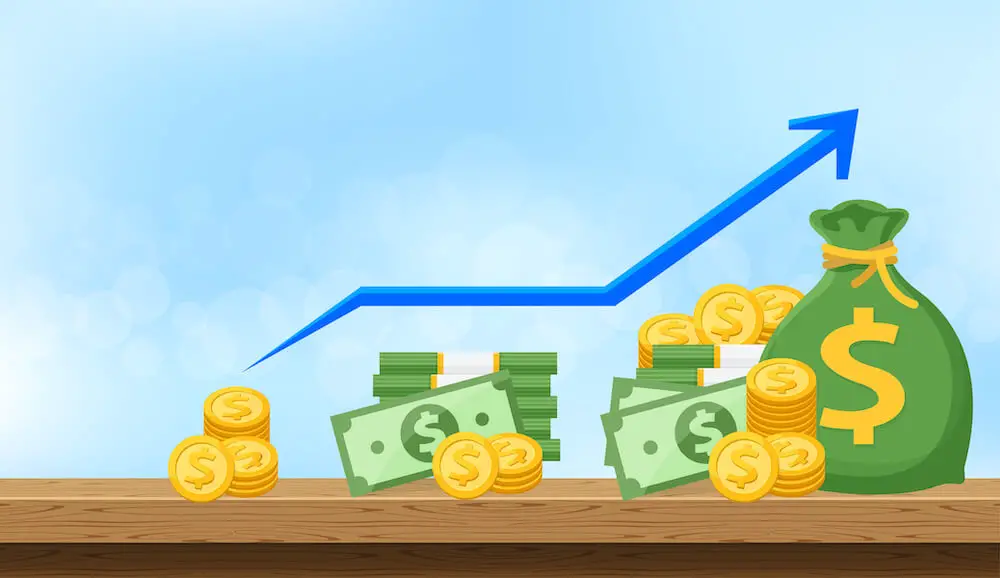Last week, FedSmith ran an article entitled TSP Starting Strong in 2021. That was true then. But, several days later, it is no longer true.
Instead, the core stock funds in the Thrift Savings Plan (TSP) have gone down in the last several days and that has impacted their monthly returns. Here are the returns for January for the core TSP funds:
- G Fund: 0.07%
- F Fund: -0.71%
- C Fund: -1.01%
- S Fund: 2.85%
- I Fund: -1.09%
In short, the stock market has just gone through its worst week since October.
Flash Mobs and the Stock Market
The reason underlying the sudden volatility was unexpected. In a scenario that could not have occurred a few years ago, individual traders acted together like a flash mob using inexpensive (or free) stock market trades in conjunction with social media, and hundreds of thousands of individuals operated in tandem using the power of social media to impact the stock market in a way that has never happened before.
In a five-day period, a disparate group of amateur traders worked together buying shares of GameStop Corporation and jacked up the price of the company by 500%. Some other stocks highlighted by influential traders also skyrocketed in the trading frenzy, but most stocks did not. Many of these stocks went up more in three days than most do in a decade. At the same time, hedge funds that were shorting some of these stocks lost a great deal of money. (Shorting stocks is a way to make money when a stock price drops instead of the price going up.)
To put this in perspective, GameStop is a small company with annual sales that have declined by several billion dollars since it peaked in 2016. Stock shares were selling for about $19.25 at the end of the year and hit a high of $483 last week.
In the midst of the frenzy and the multitude of financial headlines mentioning the stock, the company issued a press release last week, announcing: “GameStop proudly announced today that it has received a perfect score of 100 on the Human Rights Campaign Foundation’s 2021 Corporate Equality Index, the nation’s foremost benchmarking survey and report measuring corporate policies and practices related to LGBTQ workplace equality.”
Despite the impact of the trading frenzy, no mention was made of the ongoing trading event or the financial prospects for the company. The press release added to the surreal nature of the event as one would have thought the award, while beneficial, was the underlying reason for the stock price exploding.
Normally, what moves a company stock is making more money or the likelihood of financial success with new innovations and sales prospects. GameStop has not been scoring high in that regard. GameStop reported revenue of over $6 billion in January versus about $9 billion in 2016. Despite the financials, the frantic trading in the company’s stock shot the valuation of this video game retail company to about $20 billion in one month.
S Fund Up 36.45% Over 12 Months
Despite the volatility in January, and despite some small losses in the month, the TSP funds are holding up well over the past 12 months. The best performing fund: the S Fund up 36.45% in the past 12 months. The C Fund is also up 17.16% for the past 12 months and the I Fund is up 9.99%. Among the Lifecycle funds that have existed for 12 months, the L 2050 Fund is up 15.14%.
Long-term investors may want to take note that the G Fund is up 0.87% over the past 12 months. That is the lowest return for any of the funds.
The L Income Fund, which is also a very conservative fund, is up 5.04% for the same time period. The difference is that the Income Fund has some of the TSP’s core stock funds in its portfolio.
Readers can check out the complete history for all TSP funds, including annual returns for each fund, at TSPDataCenter.com.
Results for All TSP Funds
| | G Fund | F Fund | C Fund | S Fund | I Fund |
| Month | 0.07% | -0.71% | -1.01% | 2.85% | -1.09% |
| 12 Month | 0.87% | 4.73% | 17.16% | 36.45% | 9.99% |
| | L Income | L 2025 | L 2030 | L 2035 | L 2040 |
| Month | -0.10% | -0.24% | -0.32% | -0.35% | -0.37% |
| 12 Month | 5.04% | n/a | 11.41% | n/a | 13.41% |
| | L 2045 | L 2050 | L 2055 | L 2060 | L 2065 |
| Month | -0.39% | -0.41% | -0.44% | -0.44% | -0.44% |
| 12 Month | n/a | 15.14% | n/a | n/a | n/a |
Impact of Stock Trading Frenzy on the TSP
A person buying GameStop at about $19 and selling at $400+ could make a substantial profit. Some traders have undoubtedly done that. However, when the stock drops like a rock, which is highly likely, some traders will lose money. It is a high stakes, high risk game. Those involved in this frenzy are not investors—they are gambling in the stock market.
Stock market bubbles come and go. They are an emotional event. If you are a stereotypical stock trader spending hours on social media from a computer in the basement, this is an emotional event with some making a large profit. TSP investors do not generally fall into this category and cannot do this in the TSP in any event.
Several readers have asked in the last several days: “What impact will this have on the TSP?” or “Should I sell my TSP stock funds now?”
There will not be a direct impact on the TSP. On the other hand, if the market does react to this frenzy, or any other external event, and the market drops 10-20%, your TSP stock fund values will go down. Trying to guess if this will happen, when it will happen and when the market will go back up again is usually thought of as a fool’s game. Think of this latest development in the stock market as background noise and ignore it. If you have money outside of the TSP and a personality that enjoys gambling, it may be fun and you may get a thrill and make (or lose) money quickly.
As an added incentive to avoid the frenzy, quick trading will often involve buying and selling stocks on a government computer. That is a bad idea and could endanger your federal career. If you are working at home, using your home computer while still being paid by Uncle Sam, it is still a bad idea as you are probably not focused on whatever your normal job is while working for the federal government.
It is more likely that other events will have a bigger impact on the stock market. If, as it appears, the COVID-19 vaccine proves to be effective and the pandemic fades into the past, that will help the stock market. If there is a quick economic recovery, and companies that have been undergoing financial stress begin a return to normal, that will also help the stock market.
And, of course, if your TSP increases in value during your federal career, your financial outlook for going into retirement will also be much brighter.





